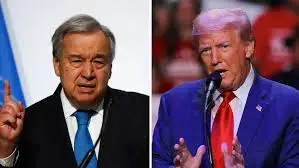How world leaders reacted to India’s strikes on terror bases in Pakistan

India strikes Pakistan over terror bases in a move that has drawn global attention. The airstrikes, which targeted militant infrastructure in Pakistan and Pakistan-occupied Kashmir, came as a response to a deadly attack in Pahalgam that killed over 25 people. While India emphasized the strikes were aimed solely at eliminating terrorist camps, the international community reacted with a mix of support and concern.
India’s Position: A Message Against Cross-Border Terrorism
India described the strikes as a necessary act to neutralize the sources of terror targeting its people. Officials emphasized that only terrorist bases were targeted, and that there was no intention to provoke Pakistan’s military directly. The government reiterated its commitment to safeguarding its citizens from future attacks.
United States: Backing Anti-Terrorism with a Warning Against Escalation
The U.S. recognized India’s right to defend itself against terrorism. However, it also urged both nations to remain cautious. Washington highlighted the need for diplomatic solutions and advised both countries to avoid further military action.
United Nations: Urging Maximum Restraint
The United Nations called on both India and Pakistan to exercise “maximum restraint.” Officials stressed the importance of peace in the South Asian region. The UN also warned that continued tension could threaten broader regional stability.
China: Calls for Dialogue and Regional Stability
China reacted with caution. It condemned terrorism while also calling for the respect of national borders. Beijing urged both countries to settle their differences peacefully and avoid any action that could escalate into open conflict.
Middle Eastern Nations: Condemn Terror, Promote Peace
Countries like the United Arab Emirates and Saudi Arabia expressed concern over rising tensions. They condemned the terror attack but also emphasized the need for both sides to de-escalate. These nations have strategic ties with both India and Pakistan and want to maintain balanced relations.
Israel: Strong Support for India
Israel backed India’s actions, stating that countries have the right to defend their people. Officials from Jerusalem called the strikes a justified response to terror. They also stressed the need for global cooperation to eliminate extremist threats.
Japan and the European Union: Support for India, Call for Restraint
Japan and EU member nations condemned the terror attack in Pahalgam. They supported India’s right to protect its citizens. Still, they warned that military action must not spiral into war. These nations urged New Delhi and Islamabad to return to the negotiation table.
Pakistan’s Reaction: Condemnation and Vows of Retaliation
Pakistan denounced the strikes as an attack on its sovereignty. Officials in Islamabad vowed to respond at a time of their choosing. The Pakistani government also reached out to allies in the Muslim world and to global powers, asking for support against what it called Indian aggression.
Conclusion: Support Mixed with Caution
The global response to India’s strikes reflected a careful balance. While many supported India’s right to self-defense, almost all called for restraint. The international community remains concerned that any misstep could lead to a larger crisis between two nuclear-armed countries. The path ahead, as many leaders agree, lies in dialogue—not in escalation.






